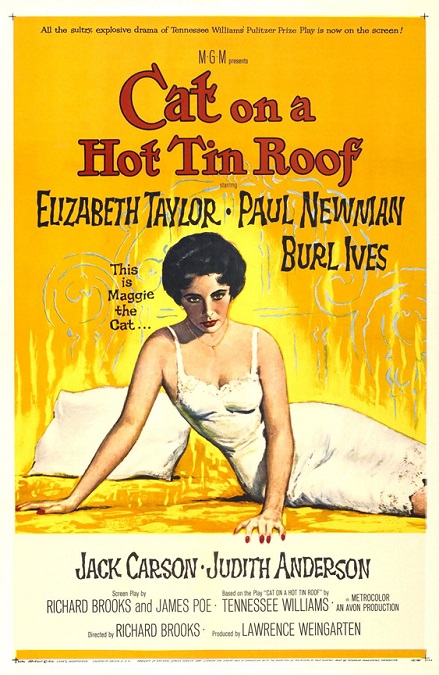
Cat on a Hot Tin Roof – 1958
Wow! This was an incredible movie! Great story, great characters, great cast, great sets and costumes. Nearly everything about this movie was amazing. Notice I use the word “nearly.” There was one issue in particular that I would have changed, but I know exactly why the film was made as it was. But I’ll get to that in a bit.
This was, first and foremost, a drama done right. It starts with a one of the world’s most dysfunctional families and when the wealthy patriarch, Big Daddy, wonderfully played by Burl Ives, learns that he is dying of cancer, the crocodile tears begin to flow, the vultures descend, and the claws come out. The interactions of the individual characters as they each deal with the situation in their own ways was incredibly well written and fascinating to watch.
Big Daddy is a mean and nasty man who appears to hate his entire family. His wife, Big Mama, played by Judith Anderson, goes through life with blinders on, trying to defend her acerbic husband and pretends that they are both happy. His oldest son, Gooper and his wife called Sister Woman, played by Jack Carson and Madeleine Sherwood, respectively, hate the old man and are positioning themselves to inherit his vast fortune. The two have a brood of children who have never learned any manners.
But the two real stars of the film are Big Daddy’s younger son Brick, played perfectly by Paul Newman, and his wife Maggie “the Cat,” played by Elizabeth Taylor. These two were amazing to watch. The couple start off estranged from each other. Apparently something has happened between them that has their marriage on the rocks. She spends her time desperately trying to win back his affections, and he spends all his time drinking himself to a stupor.
The film follows the family as they learn of Big Daddy’s impending death. They all deal with the news in their own ways. Secrets are kept and revealed, lies are told and uncovered, emotions run high, and after a night of shouting and arguing, many truths are finally told. And the family somehow survives the ordeal! Big Daddy makes his peace with most of the family, Brick and the Cat are reconciled, and the ending is a happy one for everybody… well, except for Sister Woman.
The drama was engaging and the characters created by Tennessee Williams, the author of the Pulitzer Prize-winning play upon which the film is based, were real and complex. The cast all did such an incredible job, giving us both the lines on the pages and the turbulent emotions that ran beneath the words. I particularly loved Burl Ives, whose performance was nothing short of genius.
What, then, you might ask was the one thing about this film that I would have changed? I would have left the original script alone. Once again that blasted Hays Code stepped in and changed the motivations of a single character, motivations that drove most of the film’s hardest drama. There was a reason for Brick’s voracious drinking. It is revealed that he never touched alcohol until the suicidal death of his dear friend Skipper, a character who was dead before the start of the film.
His dear friend… Apparently, in Williams’ original play, Brick and Skipper had homosexual feeling for each other. When Maggie confronted Skipper about those feelings, Skipper takes her to bed to prove her wrong. But he can’t go through with it. He confesses his feelings to Brick, but Brick rejects him, causing him to commit suicide. Unfortunately, the Hays code wouldn’t allow any allusion to a homosexual relationship to enter the movie, though if you know what to listen for in the subtext, it is pretty darn clear. Brick hates himself for rejecting both Skipper’s love for him and his own love for Skipper, which ultimately led to his friend’s death.
As it was, the film made it so that Maggie had tried to seduce Skipper in order to drive a wedge between him and Brick. Brick believes that she has cheated on him with his best friend, thus creating the rift between them. They did a good enough job of working around the subject to appease the Motion Picture Production Code, but I wish they could have stuck to the original material.

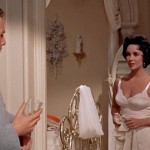
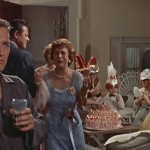
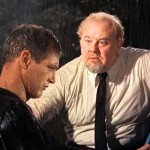
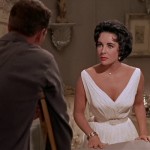
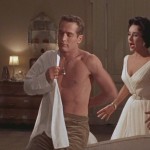
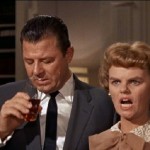
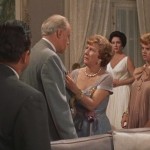
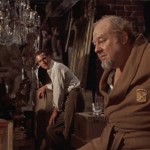
Yes, but sometimes ambiguity is a powerful thing, and weather Brick is gay or not, why can’t he want to make Maggie pregnant in the end, to help realise a dream that at that time may have been achievable? It was clear she understood who he was but still adored him. Many women are attracted to gay men, especially those who have had gay fathers. It kind of adds to the disfunction of it all, and could be a better mirror of the world of the South . She could have been pregnant with Skipper’s child. Maggie being a ‘cat’ and, (maybe he knew she wasn’t lying), maybe this is what Williams had in mind. Maybe he knew she was pregnant with the child of his lover, and this suddenly turned her in to ‘The Holy Grail.’